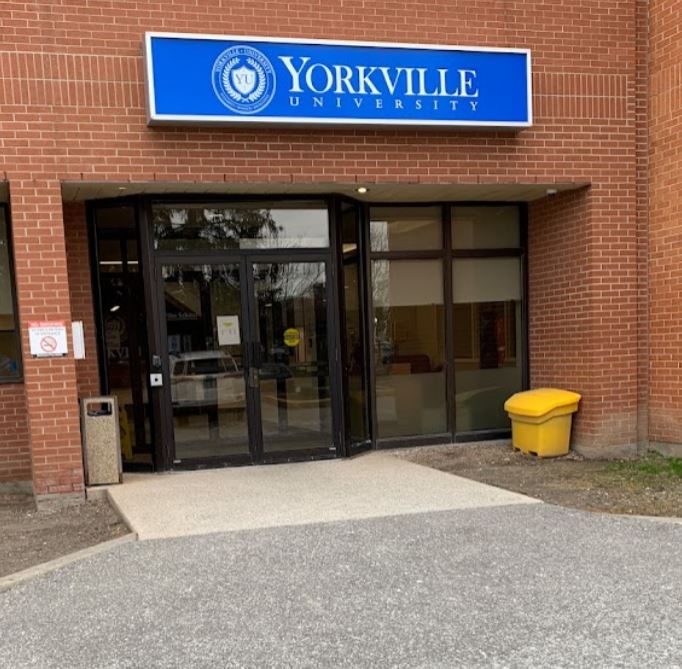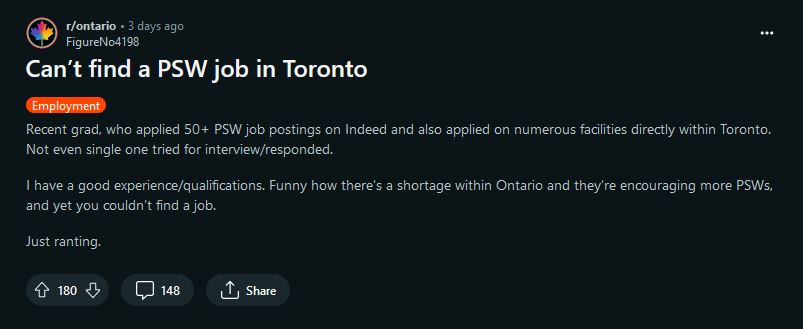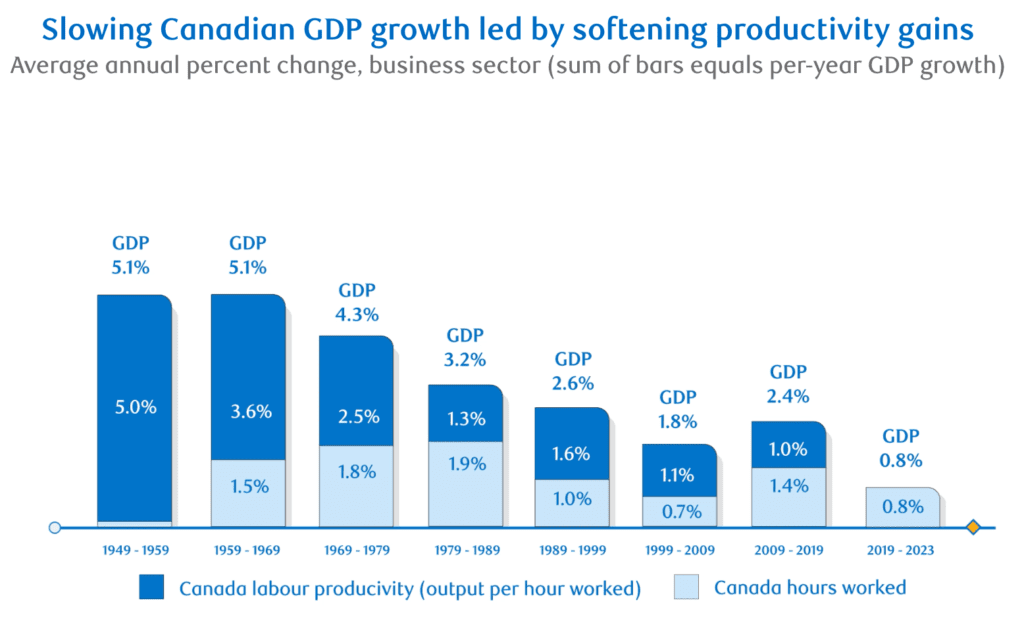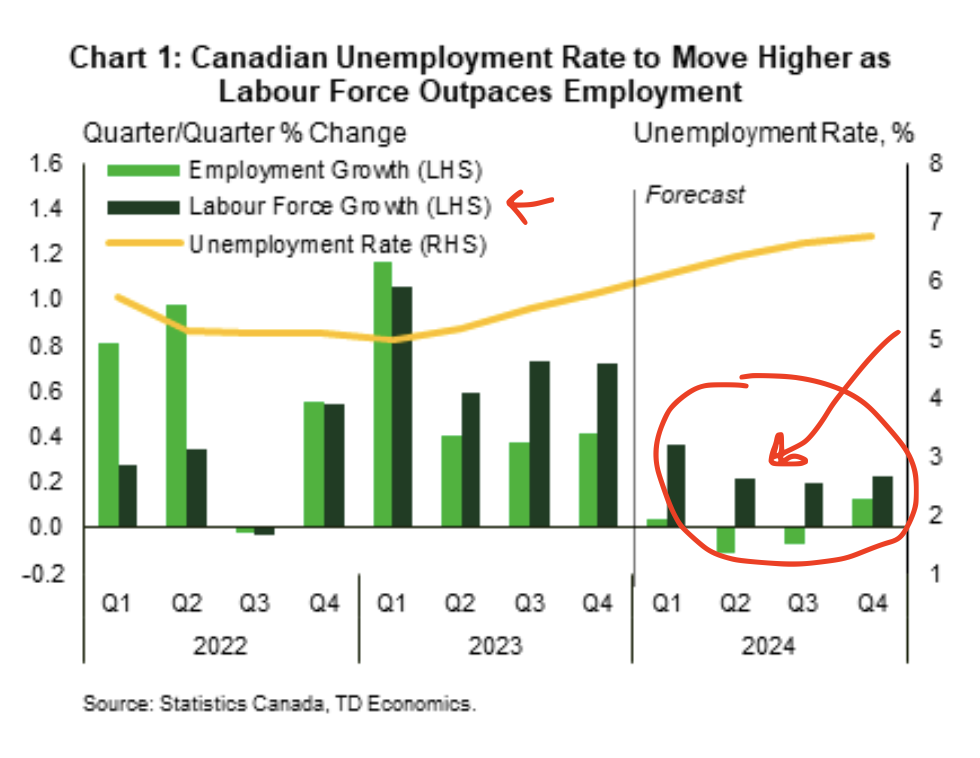In today’s highly competitive job market, many Canadians and permanent residents are increasingly coming to the conclusion that there are no jobs in Canada.
Okay that may be a bit of an overstatement so let me clarify; there are some jobs in Canada in some industries but it’s beginning to seem nearly impossible to secure stable employment opportunities like our forefathers and mothers once did.
With countless stories of overqualified citizens unable to find work flooding the media, one must wonder—what is really driving this sickening trend?
Well, our education, immigration, and job market seem to be under siege.
Each year, hundreds of thousands of “international students” or foreigners looking for a better life descend upon our shores, for a fresh start and to contribute to the Canadian economy.
However, the rush to the Great White North has exposed some cracks in our own economy’s ability to absorb them and opened a new door of profiteering and exploitation from diploma mills to immigration scams.
In this article we will explore why homegrown youth and job seekers and permanent residents may feel like there are no jobs in Canada and how some tactics used under the guise of education are causing growing concerns and unfairly affecting Canadians.

1. Diploma Mills on Every Corner
Recently, new types of private educational institutions have emerged across Canada – “diploma mills” and “strip-mall colleges.” Operating out of nondescript buildings with few resources beyond rental space and a website, they purport to offer vocational training to all newcomers.
| Province | Number of diploma mills | Number of international students enrolled in diploma mills |
| Ontario | 1,200 | 75,000 |
| British Columbia | 500 | 40,000 |
| Quebec | 300 | 25,000 |
| Other provinces | 200 | 10,000 |
| Total | 2,200 | 150,000 |

The above table shows the estimated number of diploma mills and international students enrolled in them by province in Canada. It illustrates the extent and distribution of this phenomenon across the country.
And gone are the days of selective admissions. The entry criteria for these schools are minimal; as long as one has a pulse and tuition dollars, admission is assured, with no requirements for prior education, language skills, or experience.
These diploma mills are very popular among international students, who flock to Canada in droves to enroll in these programs. These programs are flexible, allowing students to complete their diplomas and certificates in months or even weeks in fields like business, hospitality, health care, and IT.
However, these programs are also of poor quality, irrelevant to the job market, and unrecognized by employers and regulators. And this practice has a negative impact on the credibility of Canadian education and workforce.
By enrolling in these diploma mills, international students are compromising the learning environment and the academic integrity of their programs. This is leading to overcrowding, cheating, plagiarism, and poor outcomes for both international and domestic students.
Moreover, by flooding the job market with graduates who have dubious credentials and skills, international students are devaluing the worth of Canadian education and workforce and making it harder for Canadians and immigrants to find meaningful and rewarding employment. No wonder people are increasingly stating there are no jobs in Canada – there were never enough to begin with.
This practice also undermines the integrity and purpose of the study visa system, which is meant to facilitate genuine international education and cultural exchange, not to serve as a backdoor to work and immigration in Canada.
2. Exploiting Study Visas for Work Opportunities
Are international students really interested in studying in Canada, or are they using their study visas as a cover to work and immigrate to Canada?
This is a question that many Canadians and immigrants have been asking as they witness the growing presence and influence of international students in the Canadian job market. And one where the answer is becoming increasingly clear.
Reports suggest many foreign students spend little actual time in classrooms yet work significant hours in local jobs typically attractive to Canadians and permanent residents.
- Students use websites to find under-the-table part-time work, which is against the rules.
- Classmates say their peers work 30+ hours each week but do not study much.
- Surveys find over half of graduates work in fields totally different than their studies.
While some fill jobs Canadians don’t want, the facts show education may not be the main reason for coming. Some observations:
- Students clearly break the rules without punishment.
- Websites help students get illegal work.
- Schools ignore incentives for students who are focused more on money than learning.
If true, such widespread job-seeking behavior raises important questions about whether these individuals’ primary motivation is truly academic learning or rather using our education system as an expedient pathway to employment. With study permit holders legally allowed to work only 20 hours per week and entitled to post-graduation work permits, the line becomes blurred between genuine students and those abusing open work rules.
The implications of this for domestic and immigrant job seekers are concerning. With enrollment of international students ballooning in recent years, competition is undoubtedly stiffer for coveted entry-level positions that offer potential for career progression.
Just take a look at this recent grad who’s applying for PSW jobs in Toronto experessing their hardship in finding suitable work in Ontario’s largest city where there’s a supposed shortage of health workers:

At a time when well-educated young Canadians already struggle with underemployment and mounting costs of living, some argue it is unfair to open the door even wider to temporary foreign competition under the guise of learning.
Clearly, there needs to be an honest discussion about balancing inclusion, education, and protecting opportunities for those studying and working here permanently.
Furthermore, if you’d like to see a deep dive on how Canadian Study Permits are exploited to quickly work and live in Canada quickly, check out our deep dive here:
3. No Jobs in Canada Due to the Stagnation of the Canadian Economy
Another key point is that Canada is welcoming a record number of newcomers amidst an already declining economy. In fact, it has been established that the average GDP per capita in Canada has declined to match that of the poorest U.S. states.
Whether this is a strategy to jump-start the economy out of a recession, or simply a result of poor immigration policy, the signs are clear: Canada’s economy is too small to support the massive influx of new people.
Instead of addressing the root causes of these issues, such as Canadian productivity, innovation, and bureaucratic red tape, policymakers have attempted to resolve the problem by relying on immigrants and propping up housing prices to help the country emerge from this situation.

However, if you have lived in Canada for more than one month, you become aware that this approach has exacerbated the situation, especially in terms of cost of living and job markets.
Canada’s big embrace of immigration as a fix-it for our economic woes post-pandemic. Last year, we welcomed over 405,000 new permanent residents. That’s a record, you guys!
And it’s not just about numbers; it’s about people bringing life and energy to our workforce and communities. The plan for the next couple of years? Keep the doors open, welcoming around 1% of our population each year in immigrants. It’s a big deal, especially with so many of our folks hitting retirement soon. We’re talking about 5 million Canadians! This shift is going to change the face of our workforce and, honestly, our neighborhoods too.
But here’s the tea: this influx of new souls isn’t all sunshine and rainbows. I’ve been hearing – and you probably have too – about how this might be a bit too much, too fast.
Our dear PM, Mr. Trudeau, had this vision of immigration fueling our economy and plugging those job gaps. Smart, right? But now, the reality check – our cities are feeling the squeeze. More people means more pressure on things like buses and subways, finding a place to live, and even getting a doctor’s appointment.
And, oh boy, the economy’s getting a bit hot under the collar. The Bank of Canada’s even hinting at hiking up interest rates to keep things cool. It’s like adding more ingredients to a simmering pot – you gotta keep stirring to avoid a boil-over.
In all of this, I’m thinking, where’s the balance? We love the energy and diversity new folks bring, but we also need to make sure we’re ready for them. It’s like planning a big party but forgetting to check if there’s enough cake for everyone. We’ve got to figure out how to welcome our new neighbors without overwhelming the neighborhood. And that, my friends, is the real challenge.
4. More People Coming in than Jobs Created
If you’ve been struggling to secure a job in Canada this year, you’re not alone. And, it likely is tied to the current labour market dynamics, as laid by TD Economist Marc Ercolao’s report where he suggests a simple supply and demand unbalance between labour force participants and job openings is manifesting.
For example, Canada’s job market is experiencing a more gradual cooling phase. While this sounds like a relief, it’s important to note that the rise in unemployment isn’t due to a massive drop in hiring. Rather, it’s a consequence of an increasing number of job seekers entering the market. This surplus in labor supply is making it harder to find job opportunities.

While Public-sector industries are still maintaining a strong demand for labour, private sector (where many new immigrants will look to find their first job) has been significantly weakening.
This is especially true in provinces like Ontario and British Columbia, where you will face more challenges finding private sector full-time employment. Regardless, the Canadian job market in 2024 is a mixed bag and it contributes to the feeling that there are no jobs in Canada. An increase in labour supply, a slowdown in private-sector hiring, and varying regional demands are contributing to the tougher job search many are experiencing.
5. Complicitness of Canadian Colleges
You might think Canadian colleges are innocent victims of the international student invasion, but you would be wrong. In fact, many of them are actively and willingly participating in this scheme, luring in massive numbers of international students with false promises and low standards, all for the sake of making a quick buck. Reports say colleges hire expensive agents overseas to find lots of students willing to pay big bucks to study here.
Why do Canadian colleges do this? Well, the answer is simple: money. International students pay much higher tuition fees than domestic students, sometimes up to four times more. This means that Canadian colleges can rake in millions of dollars from these cash cows without having to invest much in improving their facilities, faculty, or curriculum.

In fact, some colleges even lower their admission requirements and academic standards to accommodate more international students, regardless of their qualifications or abilities.
What are the consequences of this practice? Well, for one thing, it affects the quality of education and the job market. By admitting more international students than they can handle, Canadian colleges are compromising the learning environment and the academic integrity of their programs.
This can lead to poor outcomes for both international and domestic students. Moreover, by flooding the job market with graduates who have dubious credentials and skills, Canadian colleges are devaluing the worth of Canadian education and workforce and making it harder for Canadians and immigrants to find meaningful and rewarding employment.
Is this ethical? Is this fair? Is this sustainable? We think not.
Canadian colleges have a responsibility to uphold the standards and reputation of Canadian education and workforce and to serve the interests and needs of Canadians and immigrants, not to exploit and betray them. We call for reforms to stop Canadian colleges from being complicit in admitting international students and to restore the balance and integrity of the study visa system before it is too late.
Wrapping Up
It is clear that the Canadian study permit system has been exploited on a large scale through dubious diploma mills, deceptive work-study balances, and the complicity of profit-driven colleges.
While diversity and inclusion are valued in Canada, the integrity of our education and workforce must also be protected. Genuine students seeking cross-cultural learning experiences should not have their opportunities crowded out by those primarily interested in employment pathways.
Stronger oversight and reformed policies are urgently needed to curb exploitation and restore balance to the study permit system.
But if you’ve given up hope that the policy makers can fix this, there is still hope. Perhaps you can head to a new country while it boils over. But if you’re not sure what country is right for you, we’ve got you covered. Take our Leaving Canada Quiz to match yourself up with a country that supports your needs.
Looking to leave Canada?
Take the country quiz to see where you belong!


Leave a Reply